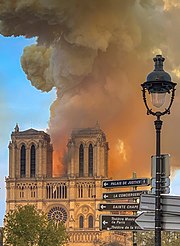Nadene Goldfoot
Lev Davidovich Bronstein, better known as Leon Trotsky, was a Ukrainian-Russian Marxist revolutionary, political theorist and politician. Ideologically a communist, he developed a variant of Marxism which has become known as Trotskyism. Born to a wealthy Ukrainian-Jewish family in Yanovka (now Bereslavka), Trotsky embraced Marxism after moving to Nikolayev in1896.
Leon Trotsky was born Lev Davidovich Bronstein to David Leontyevich Bronstein (1847–1922) and Anna Lvovna (née Zhivotovskaya, 1850–1910) on 7 November 1879, the fifth child of a Ukrainian Jewish family of wealthy farmers in Yanovka or Yanivka, in the Kherson governorate of the Russian Empire (now Bereslavka, in Ukraine), a small village 24 kilometres (15 mi) from the nearest post office. His father, David Leontyevich, had lived in Poltava, and later moved to Bereslavka, as it had a large Jewish community.
8-year-old Lev Bronstein, 1888The language spoken at home was a mixture of Russian and Ukrainian (known as Surzhyk). In the Ukrainian People's Republic (1917-1920), Yiddish was declared a state language, along with Ukrainian and Russian. At that time, the Jewish National Union was created and the community was granted an autonomous status. Yiddish was used on Ukrainian currency in this same period, between 1917 and 1920. Trotskiy's family should have known some Yiddish as well, spoken at least by his grandparents. In fact, if should have been the native language of his parents and himself. Then, when he attended school, he would have learned to speak Surzhyik.
Kamenev and Lenin in Gorki, 1922Trotsky's younger sister, Olga, who also grew up to be a Bolshevik and a Soviet politician, married the prominent Bolshevik, Lev Kamenev. Kamenev was born as Leo Rosenfeld in Moscow, the son of a Jewish railway worker who was a convert to Russian Christian Orthodoxy and an ethnic Russian Orthodox Christian mother. Both of his parents were active in radical politics
When Trotsky asked whether he considered himself a Russian or a Jew, responded, "No, you are mistaken. I am a Social-Democrat. That's all."
Many Jews had already left Russia in 1880-81 for Palestine, being of the 1st Aliyah to rebuild and live in the land of their ancestors. Russian Jews had been through so much anti-Semitism, so many pogroms, that something happened to Trotsky, as if he had been spawned as a non-Jewish Jew, as he had put up a wall against his Jewish roots as a defense mechanism; feeling no kinship, no responsibility to any ally to Judaism, to any nation, only to "mankind".
When parents stopped practicing the cultural things, such as lighting candles on Friday nights, the special Sabbath meal, the mezuzzah on the doorposts, the people inside stopped practicing who they were and their responsibility they carried. It only took a generation to happen with life and death pressing matters entering the mind. Children who grow up with these reminders know who they are and usually are more grounded. Trotsky was not one of them and was alienated. Otherwise, to say that we are Jewish is like saying, we are Italians, or Ukrainians.
Trotsky in exile in Siberia, 1900Leon Trotsky became the Russian Communist leader. He was exiled to Siberia for revolutionary activity in 1898 at age 19, but in 1902, escaped to England. He became a Marxist and a founder of the Russian Social Democratic party. Returning to Russia during the 1903 Revolution, he was soon exiled and again escaped, this time to Vienna where he edited left-wing journals. After the Revolution of 1917, he returned to Russia from America and joined the Bolsheviks, playing an active part in the organization of the Communist Revolution. He became commissar for foreign affairs and chief negotiator of the Brest-Litovsk treaty with Germany. Trotsky then became war commisar and organized the Red Army.
His differences with Stalin, Zinoviev, and other leaders grew more pronounced, and after Lenin's death in 1924, he was given subordinate positions and eventually expelled from the Communist Party in 1927, being exiled to Turkestan, expelled from the USSR, and settling in Constantinople. In 1937, he went to Mexico where he was murdered. Jaime Ramón Mercader del Río (7 February 1913 – 18 October 1978), more commonly known as Ramón Mercader, was a Spanish communist and
Trotsky's attitude to Jews and Judaism was negative and even antagonistic to his death. Too bad that such a bright Jewish fellow had decided to pretend he was something else. Perhaps he wouldn't have met such a bloody death. There are many paths we all can take after being born. The trick in life is to choose the correct one. If Trotsky had taken a different path, maybe we wouldn't have had to deal with Communism.
Because of Communism, anti-Semitism developed. A vast number of Russians and Ukrainians did not support communism, and popular identification of of Jews with communism exacerbated alreadiy deep antisemitism among those 2 peoples. During the 1918-1920 civil war that followed the Bolshevik revolution, the anti-Communist Ukrainian fighters (the "whites" who fought the Red Army) murdered 50,000 Ukrainian Jews. their anti-Jewish passions were raised by General simon Pethura, who constantly referred to the Bolshevik armies under the leadership of"the Jew " Trotsky."
On FTDNA, I find I am 4th cousin to 2 male Bronsteins and 3 female Bronsteins. This shows that we are related, with a line going back to King David. DNA is showing the history of Ashkenazi Jews as well as Sephardim and Mizrachim Jews. We Jews are endogamic people. I'm saying this because I have the radio on a popular talk show, denying the history of Ashkenazi or any Jewish history, actually making fun of our whole existence. This can't be denied today since DNA goes along with the Torah's history and our history in the Old Testament (Tanakh).
Resource:
Why The Jews? by Dennis Prager & Joseph Telushkin
https://en.wikipedia.org/wiki/Leon_Trotsky
The New Standard Jewish Encyclopedia
https://en.wikipedia.org/wiki/Ram%C3%B3n_Mercader#:~:text=Jaime%20Ram%C3%B3n%20Mercader%20del%20R%C3%ADo%20(7%20February%201913%20%E2%80%93%2018%20October,1940%20with%20an%20ice%20axe.





































